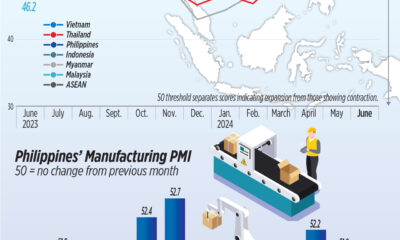Business
BatStateU launches the Philippine NEED program to redefine the future of technical education

Batangas State University (BatStateU) launched the Philippine National Engineering Education Development (NEED) program last May 8, marking a transformative step forward in the advancement of engineering education in the Philippines.
Positioned to contribute significantly to the development of highly skilled engineers and professionals who will drive the country’s progress and prosperity, the NEED program was officially introduced at the International Conference on Innovations in Engineering Education (ICIEE) 2024.
The NEED program, powered by the Center for Innovation in Engineering Education (CIEE), is designed to achieve several results by 2027. These include providing insight into the Philippine engineering education landscape, promoting truly results-oriented engineering education, supporting the elevation of national accreditation standards, redefining curricula that meet industry demands, and building sustainable local and global networks between academia and industry.
Related to this, the NEED program aims to comprehensively improve technical education in the Philippines by focusing on six essential components. Initially, it profiles the technical education landscape, assessing and refining elements such as curriculum, delivery systems, infrastructure, employability and industry linkages. It also strengthens outcomes-based engineering education across the country, by providing comprehensive training for deans and chairs in Outcomes-Based Teaching, Learning and Assessment (OB-TLA), curriculum mapping, integration strategies, the CDIO Framework and technical education for sustainable development. EESD). Further, it accelerates accreditation of engineering programs, improves participation and compliance among higher education institutions (HEIs) with improved local accreditation standards, guides deans and chairs in ABET criteria through the Professional Regulation Commission (PTC), and organizes the National Conference on Quality Assurance in Engineering Education.
In addition, the curriculum is being redesigned by developing industry-tailored courses through joint efforts involving government, universities and industry.
Another critical goal is to foster faculty excellence and enhance their expertise to elevate Philippine higher education institutions into global centers of technical education and research excellence.
Finally, the program enhances technical research collaboration, increasing the visibility of research, promoting global engagement and increasing scientific impact.













